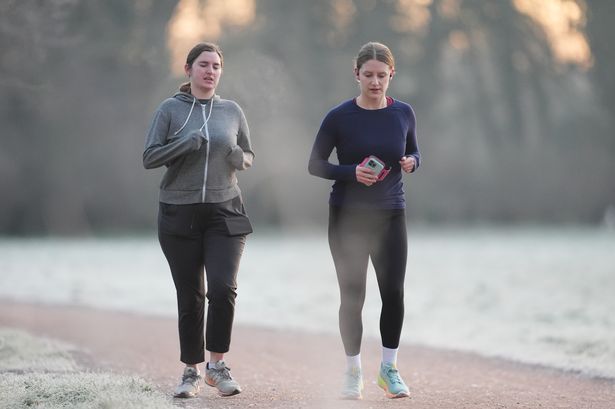
A new study published in the British Journal of Sports Medicine reveals that engaging in short bursts of exercise, referred to as “exercise snacks,” can significantly enhance health and fitness. Researchers suggest that just two minutes of activity can improve respiratory fitness, making this approach particularly beneficial for individuals with limited time or motivation to engage in traditional workout routines.
The study highlights that even minimal physical activity—between 10 and 59 minutes each week—can lead to an 18% reduction in the risk of premature death from any cause. Despite this potential, many adults fail to meet the recommended guidelines, which call for 150 to 300 minutes of moderate activity or 75 to 150 minutes of vigorous activity weekly.
Benefits of Short Bursts of Activity
The research team, which included experts from the University of Oviedo in Spain and the Danish Centre for Motivation and Behaviour Science, analyzed data from 11 randomized controlled trials with a total of 414 participants, of whom 69% were women. Exercise snacks were defined as structured bouts of activity lasting less than five minutes, performed at least twice daily and for a minimum of three days each week.
Pooling the results demonstrated that these short bursts of exercise significantly enhanced cardiorespiratory fitness among adults. Although the study found limited evidence regarding improvements in muscular endurance for older adults, the benefits of exercise snacks were still regarded as noteworthy.
While these short activities did not affect body composition, blood pressure, or cholesterol levels, the researchers emphasized that they promote adherence to physical activity. People tend to find it easier to commit to brief sessions rather than longer, more demanding workouts, which may ultimately lead to sustained engagement in physical activity.
Accessible Exercise Strategies for All
The study’s findings indicate that achieving even half of the recommended volume of weekly exercise can yield significant mental health benefits, including a 18% lower risk of depression. The researchers assert that the “time-efficient nature of exercise snacks” can assist those who believe they are too busy to incorporate physical activity into their lives.
Known examples of moderate activities include brisk walking (at least 4 mph), heavy cleaning tasks like washing windows, and cycling at speeds of 10 to 12 mph. In contrast, vigorous activities encompass hiking, jogging at speeds exceeding 6 mph, shoveling, fast cycling, and playing sports such as basketball or tennis.
By promoting short, flexible bouts of exercise, the study advocates for a shift in how individuals approach physical activity. This method not only makes exercise more manageable but also encourages a healthier lifestyle among those who may be physically inactive. As more people adopt these principles, the potential for widespread health improvements could be substantial, particularly in populations struggling with inactivity.







